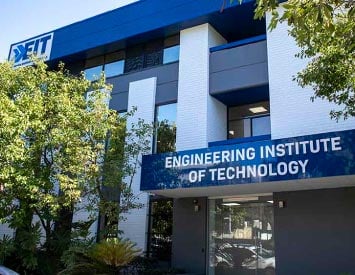EIT has received full accreditation from Engineers Australia for both its Higher Education and Vocational Education and Training programs—strengthening its global reputation and offering students enhanced opportunities, recognition, and employability.
A Global Milestone in Engineering Education
The Engineering Institute of Technology (EIT) has achieved a major institutional milestone, gaining full accreditation from Engineers Australia (EA) for its Higher Education (HE) and Vocational Education and Training (VET) programs.
The accreditation follows a comprehensive review process conducted in October and November 2024, with the results now confirmed and live on the EA website as of April 11, 2025.
The achievement highlights EIT’s ongoing commitment to delivering high-quality, accessible, and industry-aligned engineering education to students in over 160 countries.
Accreditation from Engineers Australia—recognized internationally through agreements like the Washington, Sydney, and Dublin Accords—provides assurance that EIT’s programs meet rigorous academic and industry standards.
This recognition is not just symbolic; it reflects the strength of EIT’s curriculum, the dedication of its academic and support teams, and the tangible impact of its programs on student learning and career readiness.
It also brings with it a set of commendations that spotlight the effectiveness of EIT’s innovative delivery model, strong industry links, and a learning environment designed to support success across diverse global cohorts.

Transforming the Student Experience Through Accreditation
According to EIT Deputy Dean, Indumathi V, Engineers Australia’s full accreditation validates the quality the quality and relevance of EIT’s curriculum across both HE and VET sectors.
“This accreditation confirms that the programs meet high national and international standards,” said Indumathi. “Students graduate from a curriculum that is not only academically rigorous but also practically relevant, equipping them with the technical skills and professional attributes valued by employers.”
For students, this means clearer pathways to further education, eligibility for membership with Engineers Australia, and broader global recognition of their qualifications—key advantages in a competitive job market.
With accreditation comes a reinforced focus on real-world application. EIT’s courses will increasingly integrate industry-based challenges and simulations, supported by upgraded teaching resources, advanced laboratories, and cutting-edge digital tools.
The learning environment will also place greater emphasis on developing professional skills such as communication, sustainability, teamwork, and ethical practice—competencies vital in today’s multidisciplinary engineering roles.
Indumathi emphasized EIT’s dedication to continuously evolving its offerings: “Our programs will be regularly reviewed and updated with industry input to align with Engineers Australia’s revised Stage 1 competencies, set to take effect later this year. This ensures our graduates are prepared not just for today, but for the future of engineering.”
Global Recognition, Local Impact: Boosting Career Outcomes
The full accreditation is also a powerful testament to the growing stature of EIT’s programs and the institution’s role in the global engineering education landscape.
As Indumathi noted, “There is now a stronger perception of EIT as a provider of excellence in engineering education. This gives current and future students greater confidence in the value of their qualifications.”
For graduates, the implications are clear: degrees and diplomas from EIT now carry additional weight with employers and institutions around the world.
EA’s participation in international accords means that EIT graduates enjoy smoother pathways to recognition in a wide range of countries, enhancing their job mobility and professional development opportunities.
EIT’s commitment to excellence doesn’t stop with the stamp of approval. Accreditation is viewed as a dynamic process—one that fuels innovation and continuous improvement.
“It encourages regular curricula reviews, professional development for academic staff, and the inclusion of cutting-edge topics,” said Indumathi. “This ensures our students are not only well-prepared for today’s challenges but are also future-ready.”

Behind the Accreditation: Challenges, Support, and Industry Partnerships
For EIT’s VET programs in particular, the road to accreditation required dedication, detailed preparation, and cross-continental collaboration.
As Paul Celenza, EIT’s VET College Manager, explained, “The audit was challenging but beneficial. Compiling the detailed information Engineers Australia requested within a tight timeframe required extensive teamwork.”
Key to the audit’s success were EIT’s students—working professionals from across the globe—who stepped up to provide feedback and share their experiences in real-time interviews with EA’s audit panel.
“Their strong participation and overwhelmingly positive feedback were pivotal,” Celenza noted. “It showed Engineers Australia the real-world impact of our programs.”
EA’s verbal commendations emphasized the strength of EIT’s delivery and student support. A standout feature was the role of Learning Support Officers (LSOs), whom Celenza referred to as the institution’s “secret weapon.”
“LSOs know each student’s progress and build meaningful, supportive relationships,” he said. “They genuinely care about the students and want to see them succeed. This has a direct impact on our high graduation rates.”
This accreditation also benefits students by offering assurance to employers about the legitimacy and rigor of EIT’s qualifications. “It’s another layer that demonstrates the quality of our programs—beyond government recognition,” said Celenza. “It adds real-world value in the job market, especially for students seeking global opportunities.”
Maintaining that relevance requires strong industry engagement. EIT’s approach involves ongoing consultation with training managers and industry professionals across sectors and regions. Feedback is gathered formally through surveys and informally through direct conversations, and insights are captured via internal dashboards that allow trends and concerns to be addressed promptly.
EIT’s instructor base—many of whom are active industry professionals—also contributes to the program’s continual refinement. “They are a wealth of knowledge,” said Celenza. “Their input ensures our curricula stays aligned with what’s happening in the field right now.”
Looking Ahead: A Commitment to Excellence and Innovation
The full accreditation of EIT’s programs marks not just a recognition of past efforts, but a springboard for future growth.
With Engineers Australia’s endorsement, EIT strengthens its position as a global leader in practical, accessible engineering education.
Plans are already underway to implement the recommendations included in the accreditation report, and EIT is committed to enhancing its curriculum, support systems, and infrastructure in line with evolving industry needs.
The institution’s global partnerships and feedback loops—spanning students, alumni, employers, and instructors—will continue to guide these improvements.
For current and prospective students, the message is clear: EIT offers a globally recognized, industry-aligned pathway into engineering, supported by a team that genuinely cares about their success.
As Indumathi summed it up: “Accreditation is not a destination—it’s part of our journey to shape the engineers of tomorrow.”

